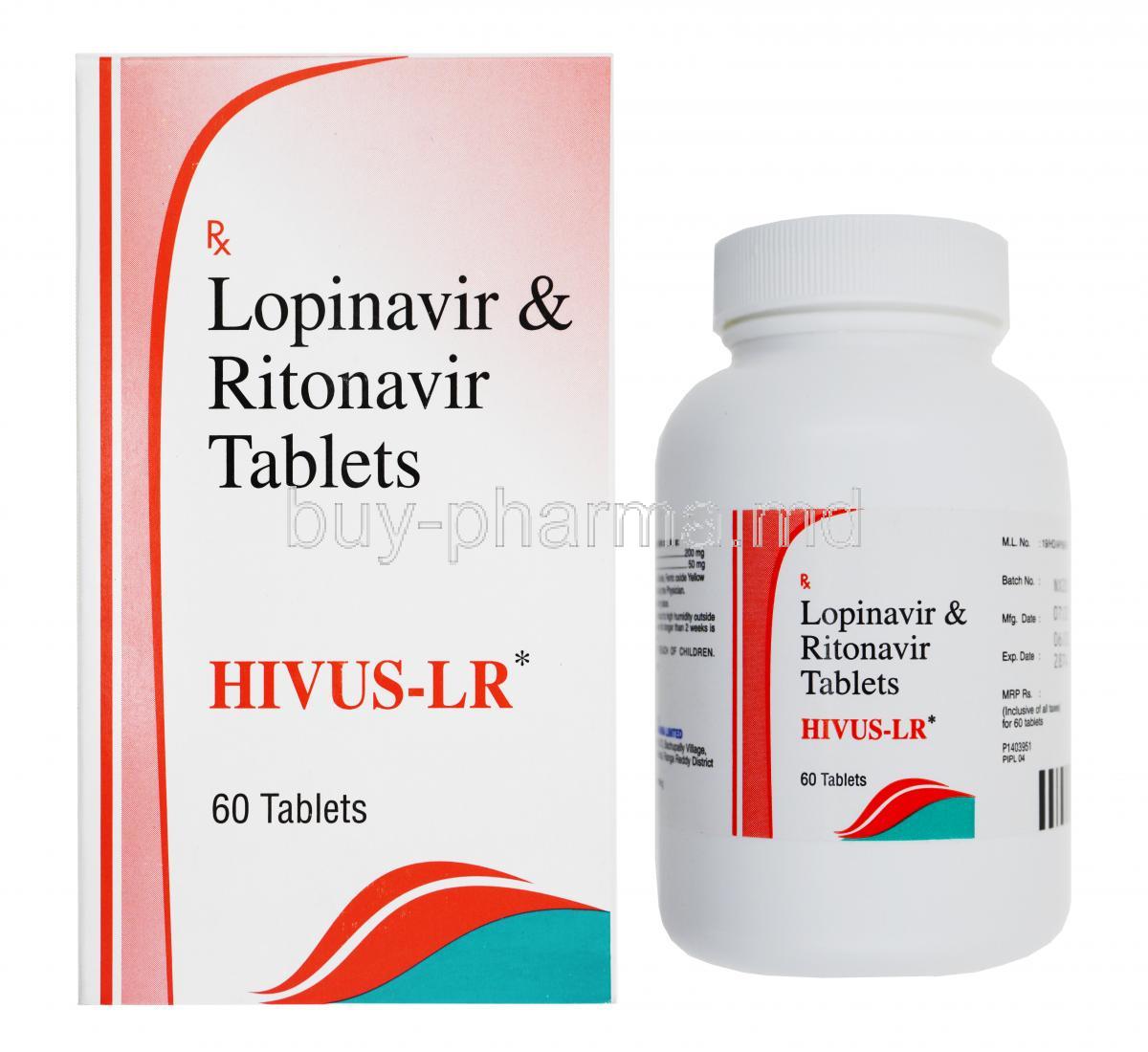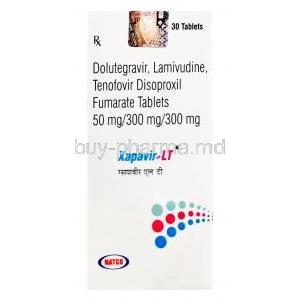I. Introduction
Overview of Lopinavir/Ritonavir:
Lopinavir/Ritonavir, a potent combination used predominantly in the treatment of HIV-1 infections, leverages the antiviral efficacy of lopinavir along with ritonavir, which acts primarily as a pharmacokinetic enhancer. This combination enhances the bioavailability of lopinavir, thus optimizing its therapeutic effects.
Importance in HIV Treatment and Management:
As a cornerstone in the antiretroviral therapy regimen, Lopinavir/Ritonavir significantly reduces the viral load and improves the immune function by inhibiting the protease enzyme, which is crucial for the maturation of the virus. This mechanism helps in staving off the progression towards AIDS and managing HIV symptoms effectively.
II. Composition and Formulation
Ingredients of Lopinavir/Ritonavir:
The drug formulation contains lopinavir and ritonavir in a specific ratio, designed to maximize the inhibition of the HIV protease enzyme while minimizing the metabolic degradation of lopinavir by cytochrome P450.
Different Formulations Available:
Available in both tablet and oral solution forms, this medication accommodates various patient needs, including those who have difficulty swallowing pills or require specific dosing not available in tablet form.
III. Mechanism of Action
How Lopinavir/Ritonavir Works in the Body:
Lopinavir/Ritonavir inhibits the protease enzyme, a vital component in the HIV lifecycle. By obstructing this enzyme, the drug prevents the viral particles from maturing and becoming infectious, thus limiting the spread of the virus within the host.
Role of Protease Inhibitors in Viral Replication Suppression:
Protease inhibitors like Lopinavir/Ritonavir are critical in disrupting the replication cycle of HIV, offering a therapeutic approach that not only reduces viral load but also enhances immune system resilience.
IV. Uses of Lopinavir/Ritonavir
Primary Indications in HIV Management:
The primary use of Lopinavir/Ritonavir is to treat individuals infected with HIV-1. It is often prescribed as part of a multi-drug regimen, providing substantial improvements in viral suppression and immune function.
Benefits in Combination Therapy:
When used in conjunction with other antiretrovirals, Lopinavir/Ritonavir can decrease the potential for drug resistance, thereby maintaining its efficacy over prolonged treatment periods.
V. Off-Label Uses
Exploration of Non-HIV Conditions Treated with Lopinavir/Ritonavir:
Researchers are investigating the application of Lopinavir/Ritonavir in other viral infections, such as MERS and SARS, where protease inhibitors may disrupt virus maturation and spread.
Clinical Studies and Evidence Supporting Off-Label Use:
Several clinical trials have demonstrated potential benefits in off-label uses, although these findings are preliminary and require further validation through extensive research.
VI. Dosage and Administration
Standard Dosing Guidelines:
The typical dosage for adults involves a fixed dose taken twice daily with food to enhance absorption. Dosage may vary based on treatment goals and patient response.
Modifications in Dosing Based on Patient Factors:
Dosing adjustments are necessary for patients with renal or hepatic impairment, and careful monitoring is recommended to avoid adverse effects.
VII. Administration in Specific Populations
Guidelines for Elderly Patients:
Elderly patients may require dose adjustments due to potential drug accumulation and the associated risks. Close monitoring of therapeutic levels and kidney function is advised.
Dosing Adjustments for Pregnant Women and Nursing Mothers:
While Lopinavir/Ritonavir is generally safe during pregnancy, dosing may need to be adjusted to maintain therapeutic levels and minimize transmission risks to the unborn child.
Considerations for Pediatric Use:
Pediatric dosing is carefully calibrated based on body weight and age to ensure efficacy and minimize side effects, ensuring a tailored approach to HIV management in children.
VIII. Side Effects and Management
Common Adverse Reactions:
Patients taking Lopinavir/Ritonavir may experience gastrointestinal disturbances, such as nausea and diarrhea, and transient hyperlipidemia. Rash and fatigue are also frequently reported.
Severe Side Effects and Their Management:
More grave complications include pancreatitis, severe liver toxicity, and hypersensitivity reactions. These require immediate medical attention, potential drug discontinuation, and supportive care to mitigate long-term health consequences.
IX. Important Precautions
Interactions with Other Medications:
Lopinavir/Ritonavir can interact with drugs metabolized through the cytochrome P450 enzyme system, leading to elevated or reduced levels of concomitant medications.
- Co-administration with drugs like rifampin, used in tuberculosis treatment, is contraindicated due to reduced efficacy of Lopinavir/Ritonavir.
- Similarly, statins should be used cautiously as there is a heightened risk of myopathy.
Precautions for Patients with Pre-existing Conditions:
Patients with existing liver disease, such as hepatitis B or C, should be monitored closely as Lopinavir/Ritonavir may exacerbate hepatic conditions.
X. Warnings and Contraindications
Situations Where Lopinavir/Ritonavir Should Not Be Used:
This includes patients with known allergies to any components of the drug, as well as those with severe liver impairment.
Potential Risks and Warnings:
There are notable concerns regarding the development of resistance if the drug is not used in a properly managed therapeutic regimen, emphasizing the need for strict adherence to prescribed dosages.
XI. Drug Interactions
Common and Significant Drug Interactions:
Apart from cytochrome P450 interactions, Lopinavir/Ritonavir can alter the effect of oral contraceptives and anticoagulants, necessitating adjustments in their dosages.
Management Strategies for Interaction Risks:
Healthcare providers must conduct thorough medication reviews and engage in active patient education to manage and mitigate drug interaction risks.
XII. Overdose Information
Symptoms of Overdose:
Overdosing may manifest as pronounced side effects including but not limited to severe nausea, vomiting, and cardiac conduction abnormalities.
Emergency Management and Antidotes:
Treatment of overdose involves symptomatic support, potentially including medications to protect the heart and stabilize the patient's condition. There is no specific antidote, making prevention through proper dosing and adherence paramount.
XIII. Storage and Handling
Storage Conditions:
Lopinavir/Ritonavir should be stored at room temperature away from moisture and heat, in its original packaging to protect from light.
Safe Handling and Disposal Methods:
Handling should minimize exposure to the product, especially in broken tablet form. Disposal should follow guidelines for potent medications, ensuring they are not accessible to unauthorized persons or pets.
XIV. Guidelines for Health Care Providers
Monitoring Parameters:
Regular monitoring of liver enzymes, lipid profiles, and renal function tests are recommended to detect potential adverse effects early.
Tips for Effective Patient Education:
Educating patients on the importance of adherence, potential side effects, and the need to report any unusual symptoms immediately can significantly improve therapeutic outcomes.































